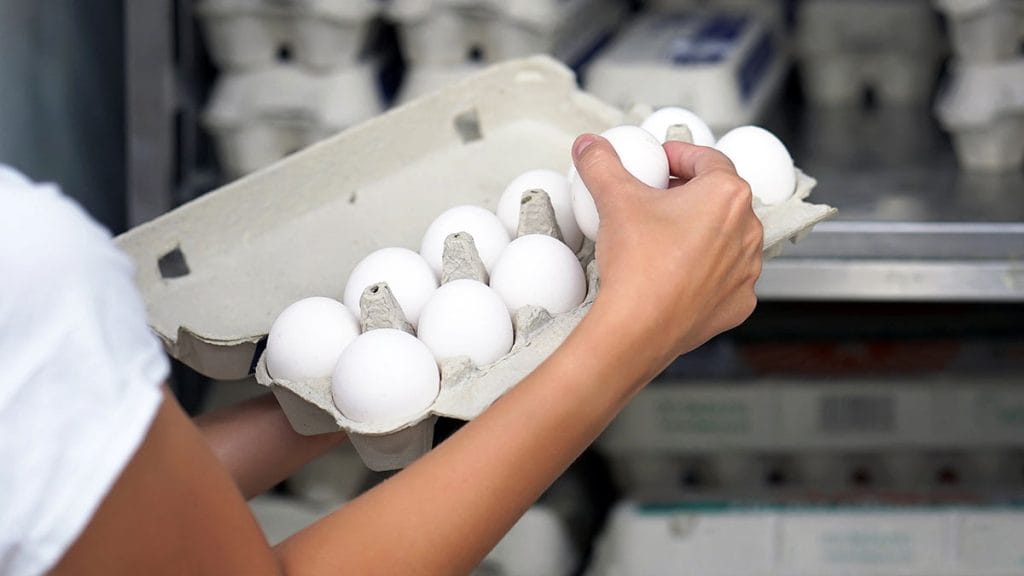By Penny Eaton
Most eggs have been delivered to the store within a week of being laid. During that week, the eggs have been collected by farmers, picked up and trucked to a grading station, washed, inspected, packaged and transported to the store. For the most part, those eggs were laid by farmers right in your province, although sometimes eggs are shipped from other provinces when shortages occur.
The best before date you see on the egg carton shows how long the eggs are expected to maintain their ‘Grade A’ quality if stored properly. That is usually 28 to 35 days from the date of packing. You can still use them after that date, but the eggs will be better for baking, hard boiling or scrambling instead of poaching or frying.

Sometimes you will see a code stamped onto the eggshell. This code can identify the farm where the egg is from, where it was graded and the best before date.
Keep your eggs in the refrigerator. They are perishable. Eggs lose moisture through all the pores in the shell and the cool, consistent temperature of the fridge will keep them fresher longer. Don’t store eggs individually in the door of the fridge as the temperature in the door is more inconsistent.
It’s always best to store eggs in their original carton. This helps protect them from damage and guards against absorbing strong flavours or odours from other foods in the refrigerator. You also want eggs to remain large-end up, as they are packaged, in order keep the yolk centred and this again helps maintain freshness.
Recommended Storage Times for Eggs
| Fresh shell eggs | By best before date |
| Leftover yolks or whites | Within 2 to 4 days |
| Hard boiled eggs | Within 1 week |
| Prepared egg dishes | Within 3 to 4 days |
| Pickled eggs | Within 1 month |
| Frozen whole eggs (blended) | Within 4 months |
All eggs sold in Canadian grocery stores must meet the grade of ‘Canada A’ by the Canadian Food Inspection Agency. Grade A means that the shell has no cracks, the yolk is centered inside the egg and the air cell is very small (a firm white). Grade A eggs are the only ones that you will find in grocery stores.
Grade B eggs might have a rough texture, or a slightly flattened yolk, or a thinner white, but the shell still must have no cracks or leaks. These eggs are sold for commercial baking, or for future processing. Meanwhile, Grade C eggs have a cracked or stained shell, or a flattened yolk, or a watery white. These eggs are only used in processed egg products.
Learn more: https://eggs.ca/eggs101/egg-storage-freshness-food-safety/
Want to know more about eggs? Check out these articles:
- Eggs and Yolk Colour: What You Should Know
- Podcast: What’s with all the different types of eggs?
- A Case of Multiple Egg Options
- What’s it Like in an Egg Barn?




 Eggs and Yolk Colour: What You Should Know
Eggs and Yolk Colour: What You Should Know